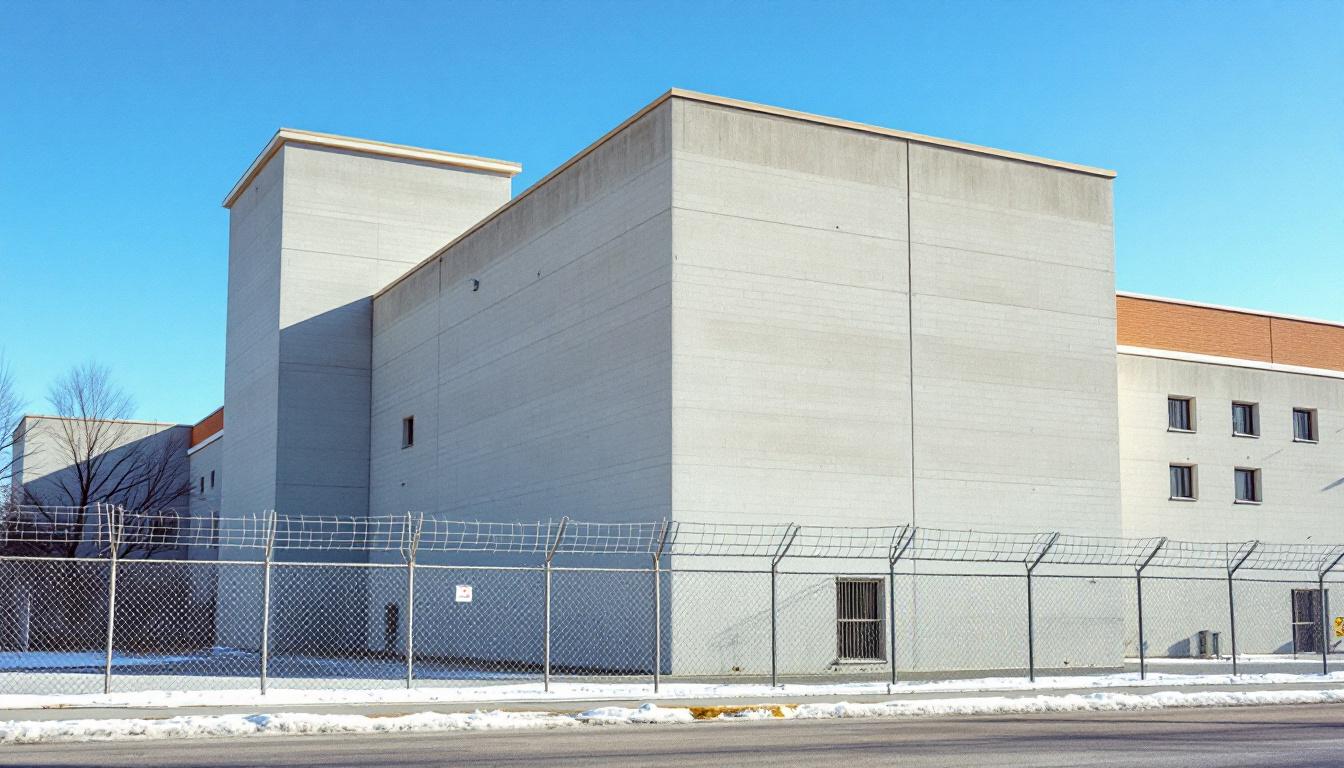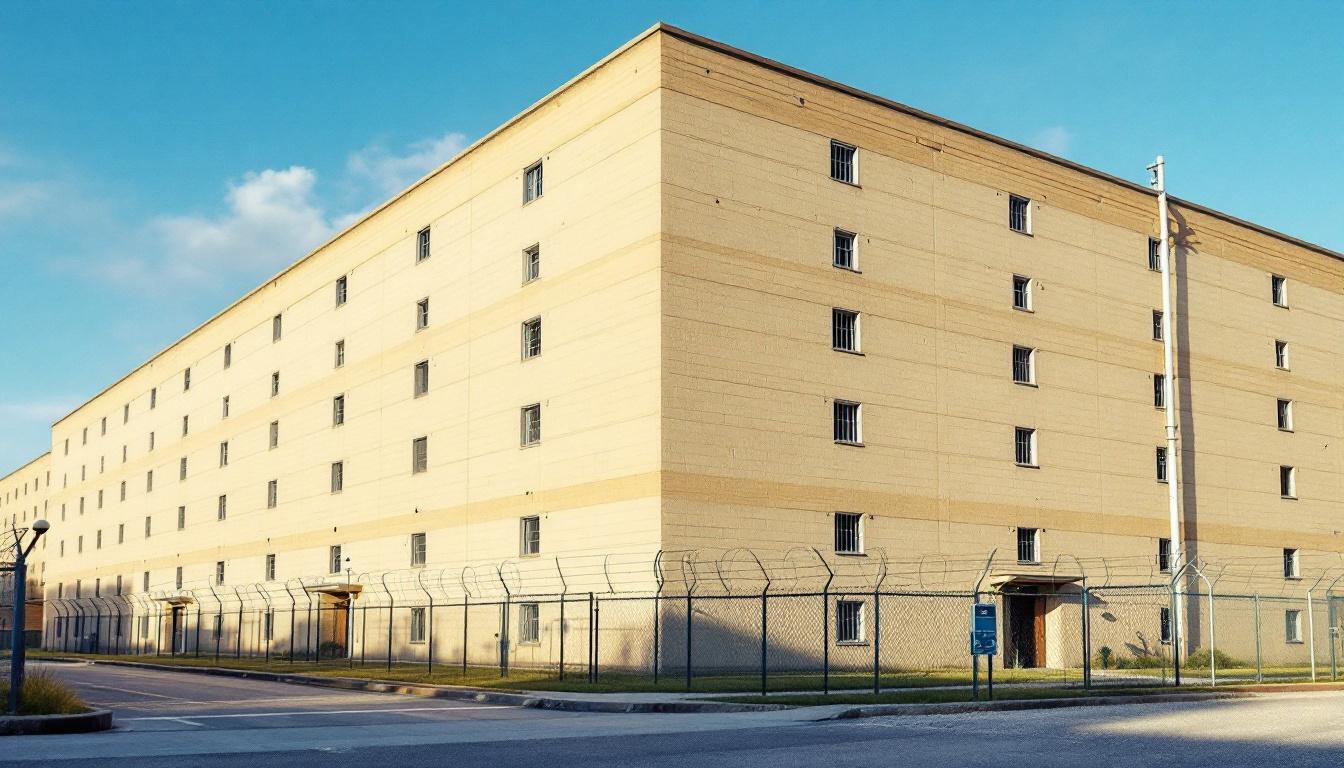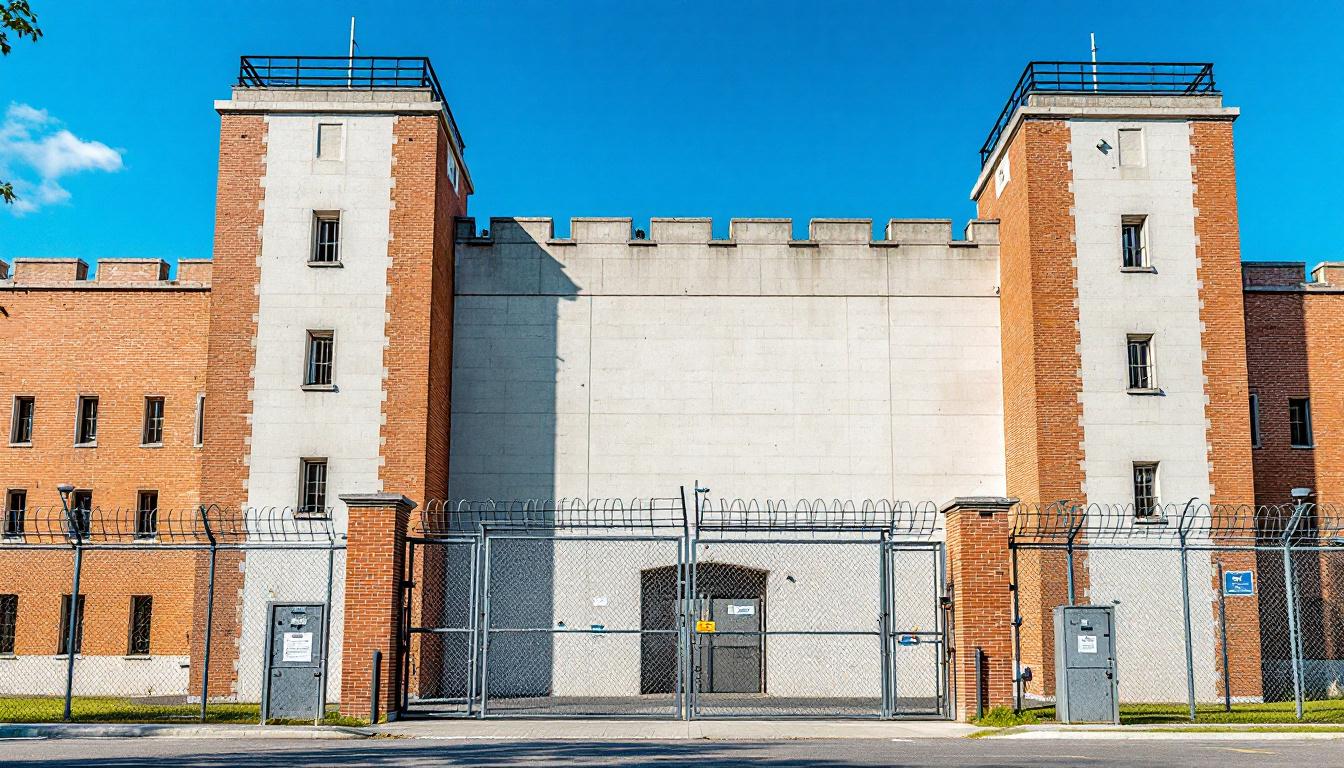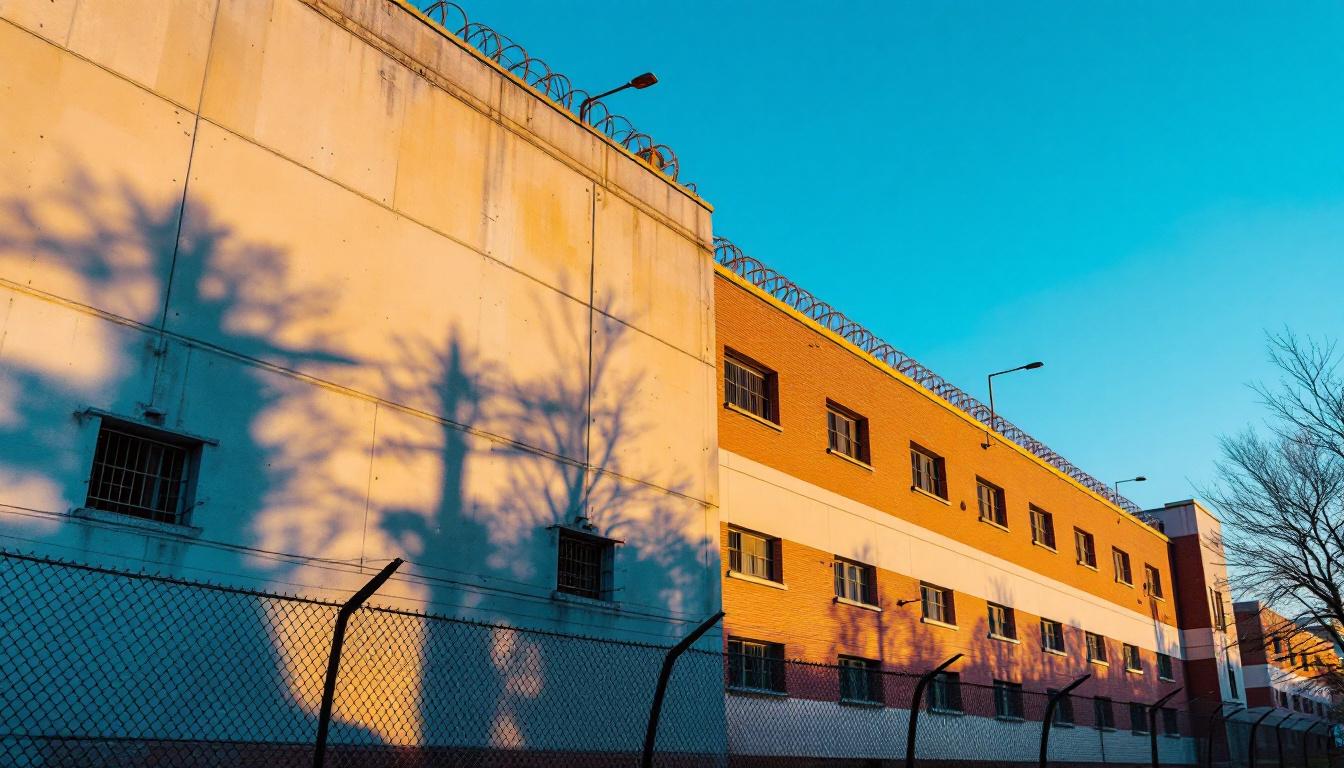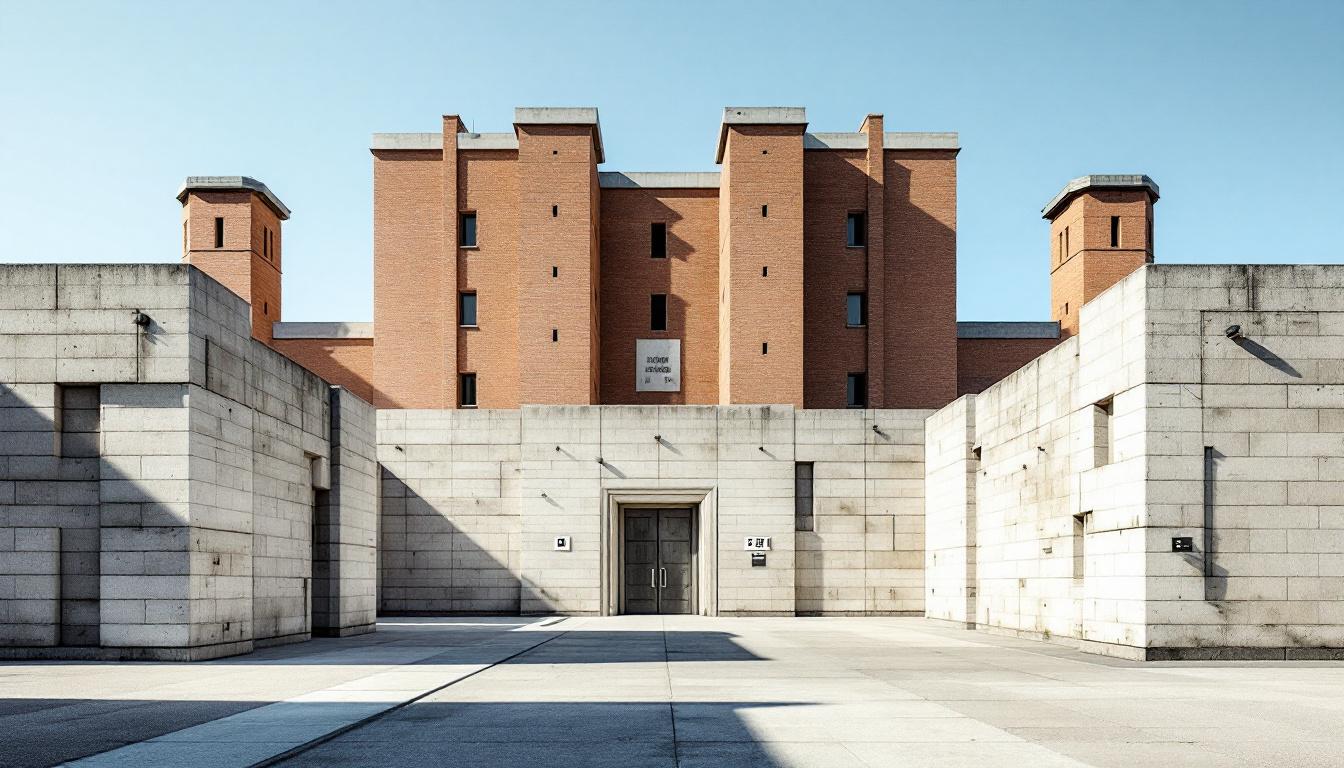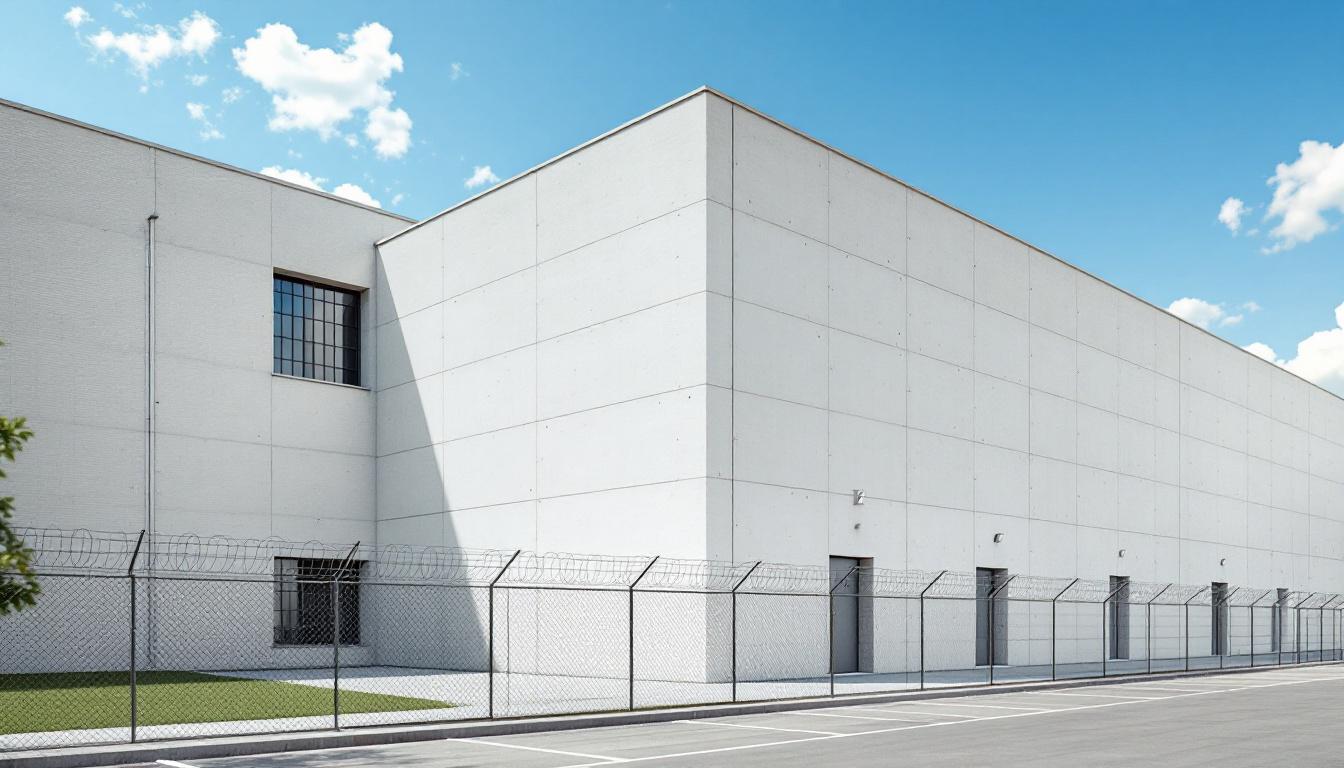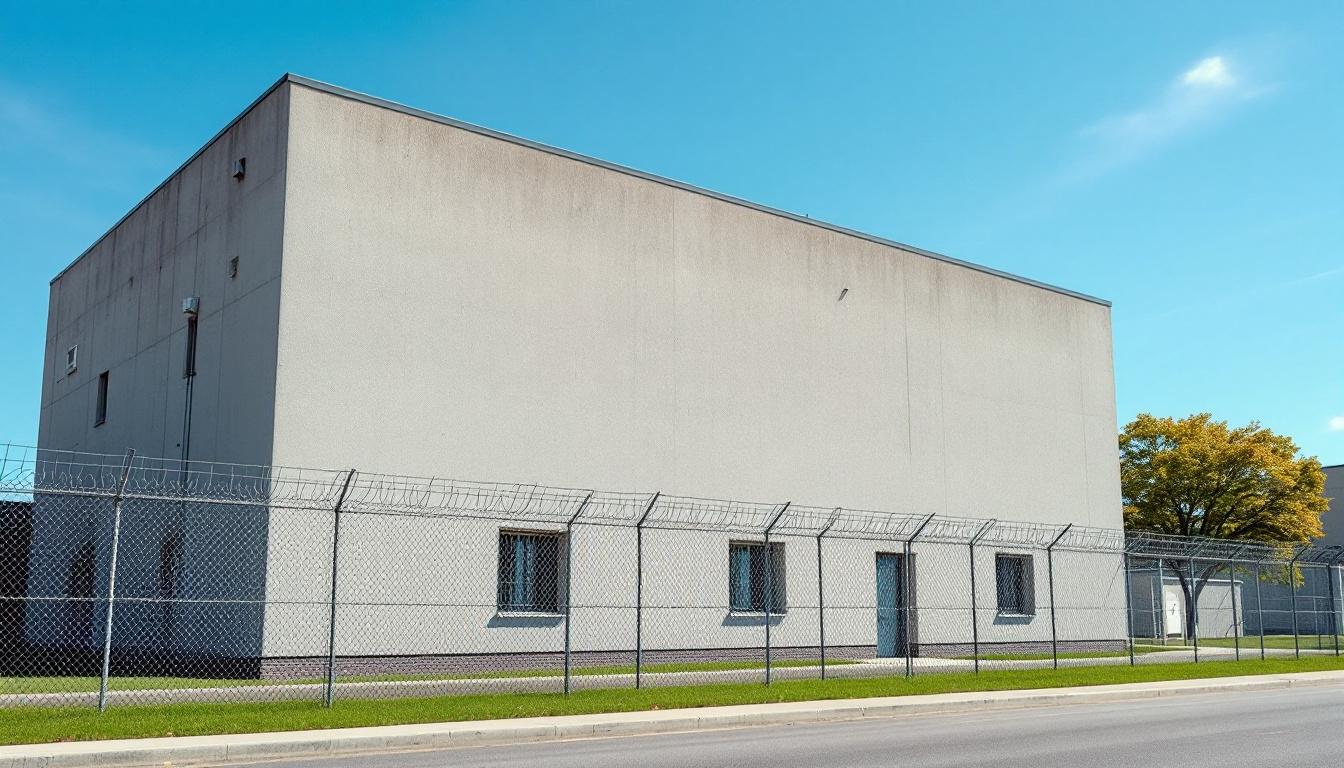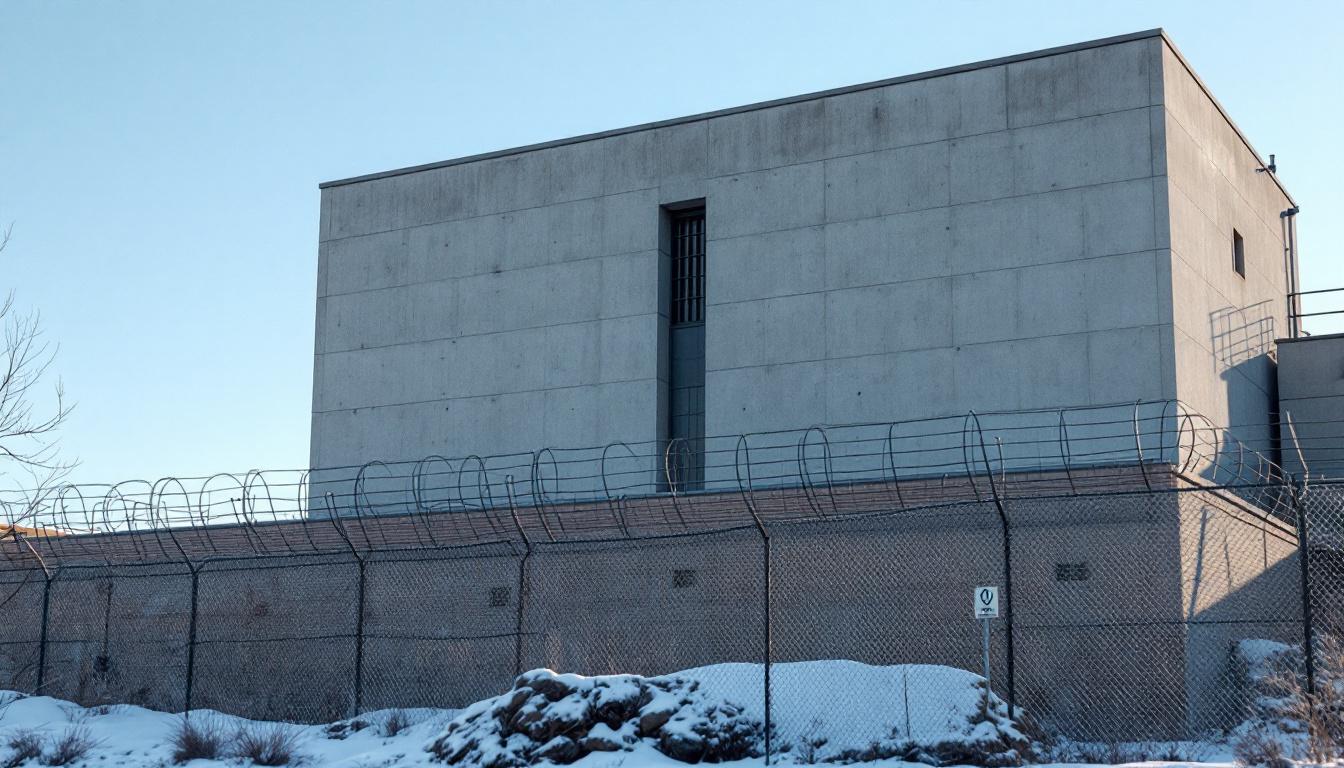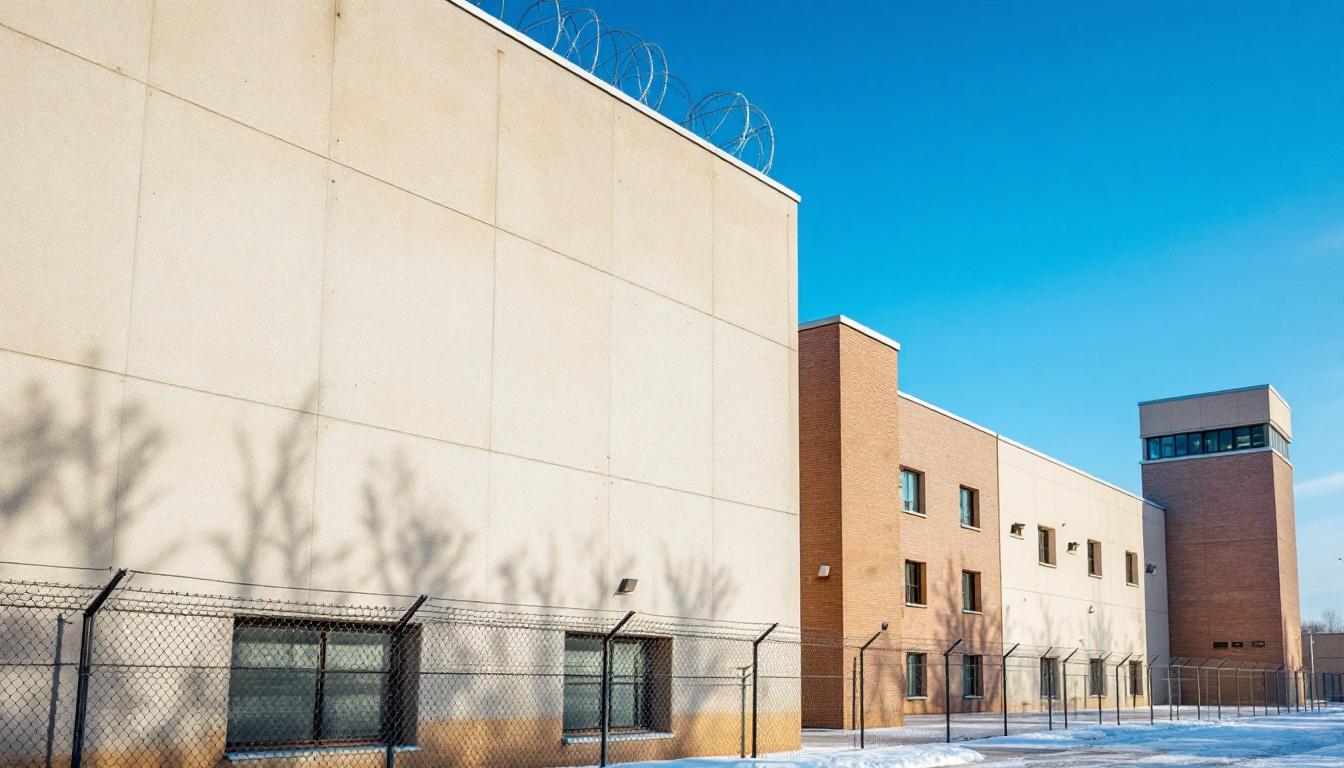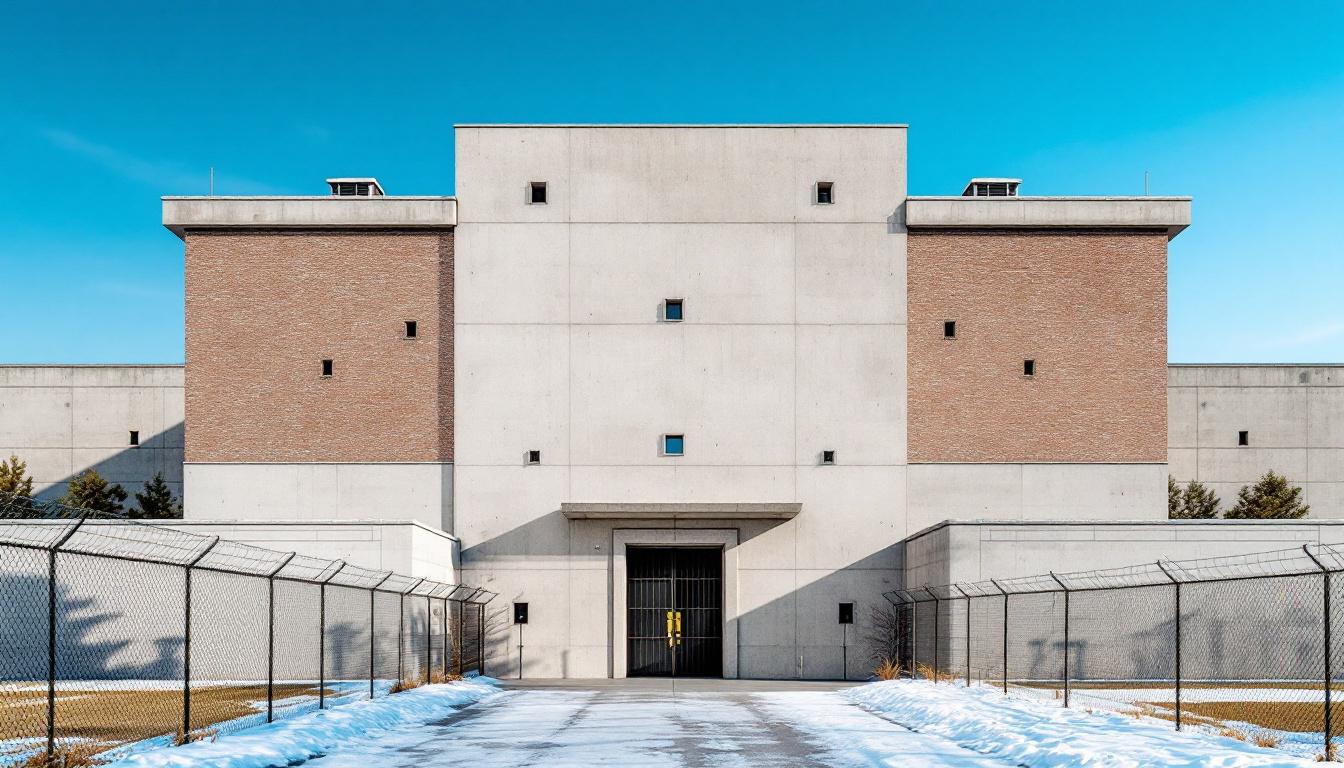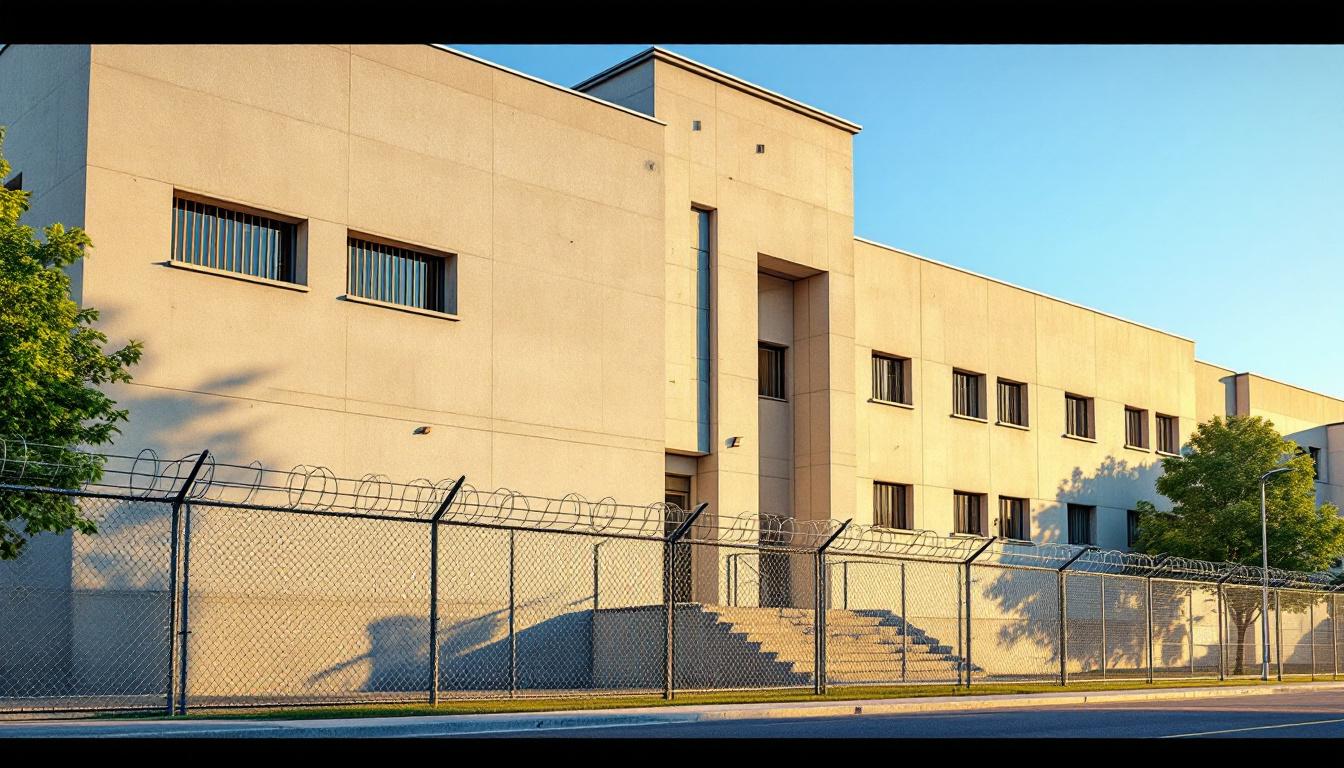
Quick Navigation
How to contact an inmate at Kershaw County Detention Center
This comprehensive guide will walk you through how to connect with an inmate at Kershaw County Detention Center. Follow the steps below to find an inmate and send letters and photos:
- Search for the inmate using our search tool below
- Create your account or log in to Penmate
- Write your message (up to 6,000 characters)
- Send instantly - inmates receive printed copies daily
Find an Inmate
Search for an inmate to start communicating today
Tip: You can search by first name, last name, or inmate ID number
To contact a person at Kershaw County Detention Center start by searching for the person on the official facility website. Perform a search by following these steps:
- Step 1: Enter their first name and last name into the search form and click "Search"
- Step 2: Locate their inmate record
- Step 3: Write down their Inmate ID and any housing information provided
Important! Be sure to enter the person's full name. Nicknames should not be used.
How to Send Messages to Inmates

You can use your phone or computer to send emails, letters, and photos to an inmate. Messages are sent electronically to inmate tablets or kiosks at the facility. If you would like to send a message, start by searching for an inmate at Kershaw County Detention Center.
Sending Photos and Postcards

A great way to send love and support to a loved one at Kershaw County Detention Center is to send photos and postcards. It only takes a few minutes to send photos from your phone and it makes a huge difference. You can also mail postcards with words of support and inspiration, or design your own postcard for special moments like birthdays and holidays.
Important! Be sure not to send any explicit photos or they may not be approved by the facility. You can also use a photo printing app like Penmate to make sure your photos are printed at the correct size (4x6 or 3x5) and are mailed according to the rules and regulations of Kershaw County Detention Center.
Frequently asked questions about Kershaw County Detention Center
-
How long does it take to deliver a message?
If you're sending an email message your letter is usually delivered within 24-48 hours. For messages sent via mail you should expect delivery within 3-7 days. All messages will need be approved by Kershaw County Detention Center.
-
How much does it cost to send a message to Kershaw County Detention Center?
You can send a message free using your phone or mail a message via USPS for the price of a $0.60 stamp and envelope. You can also purchase credits or e-stamps from services starting at $1.99.
-
What services can I use to contact an inmate at Kershaw County Detention Center?
Penmate
You can use Penmate to send letters and photos to an inmate from your phone. It's an easy way to stay in touch during your loved one's incarceration. Use the inmate locator to find an inmate's location and contact information, then you can send messages within a few minutes.
Securus messaging
Securus may be another option for communicating with an inmate at Kershaw County Detention Center. You can create a friends and family account and purchase credits to send messages. All messages will be reviewed and must be approved by the facility.
JPay
Some county jails and state prisons may support sending messages with JPay. You must register an account with the system, find your loved one, and purchase stamps to send messages. For some locations you can also attach photos.
Smart Jail Mail
You may also check if Smart Jail Mail is available at Kershaw County Detention Center. Smart Jail Mail is operated by Smart Communications and has contracted with some state and county jails. After purchasing credits, your messages and photos are sent to the facility, printed out, and then handed out to your loved one.
-
What is the mailing address of Kershaw County Detention Center?
Mailing address:
Kershaw County Detention Center
101 Bramblewood Plantation Rd
Camden, SC 29020
Phone: (803) 425-1500Business hours:
- Monday: 8:30 AM – 5:00 PM
- Tuesday: 8:30 AM – 5:00 PM
- Wednesday: 8:30 AM – 5:00 PM
- Thursday: 8:30 AM – 5:00 PM
- Friday: 8:30 AM – 5:00 PM
- Saturday: Closed
- Sunday: Closed
-
What are the visiting hours at Kershaw County Detention Center?
Visiting hours at Kershaw County Detention Center vary by housing unit and security level. Generally, visits are scheduled on weekends and holidays, with some facilities offering weekday visits. Contact the facility directly at (803) 425-1500 or check their website for the current visiting schedule. Visits typically last 30-60 minutes and must be scheduled in advance.
-
What items are prohibited when sending mail to Kershaw County Detention Center?
Prohibited items typically include: cash, personal checks, stamps, stickers, glitter, glue, tape, staples, paperclips, polaroid photos, musical or blank greeting cards, hardcover books, magazines with staples, and any items containing metal or electronics. Only send letters on plain white paper with blue or black ink. Photos must be printed on regular photo paper (no Polaroids). Always check with Kershaw County Detention Center for their specific mail policies.
-
How do I send money to an inmate at Kershaw County Detention Center?
You can send money to an inmate at Kershaw County Detention Center through several methods: 1) Online using JPay, Access Corrections, or the facility's approved vendor, 2) Money orders mailed directly to the facility with the inmate's name and ID number, 3) Kiosks located in the facility lobby, or 4) Over the phone using a credit or debit card. Fees vary by method, typically ranging from $2.95 to $11.95 per transaction.
-
Can I schedule a video visit with an inmate at Kershaw County Detention Center?
Many facilities now offer video visitation as an alternative to in-person visits. At Kershaw County Detention Center, video visits may be available through services like Penmate, Securus Video Connect, GTL, or ICSolutions. Video visits typically cost $10-20 for 20-30 minutes and must be scheduled in advance. You'll need a computer or smartphone with a camera and reliable internet connection. Contact the facility for their specific video visitation policies and approved vendors.
-
What identification do I need to visit an inmate at Kershaw County Detention Center?
All visitors must present valid government-issued photo identification such as a driver's license, state ID, passport, or military ID. Minors must be accompanied by a parent or legal guardian who can provide the minor's birth certificate. Some facilities require visitors to be on the inmate's approved visitation list, which may require a background check. Contact Kershaw County Detention Center for specific ID requirements and visitor approval procedures.
-
How can I find out an inmate's release date?
To find an inmate's release date at Kershaw County Detention Center, you can: 1) Use the online inmate search tool if available, 2) Call the facility's records department, 3) Contact the inmate's case manager or counselor, or 4) Have the inmate provide this information during a call or visit. For privacy reasons, some facilities only release this information to immediate family members.
Facility Overview
Contact Information
Kershaw County Detention Center101 Bramblewood Plantation Rd
Camden, SC 29020
Phone: (803) 425-1500
Official Website
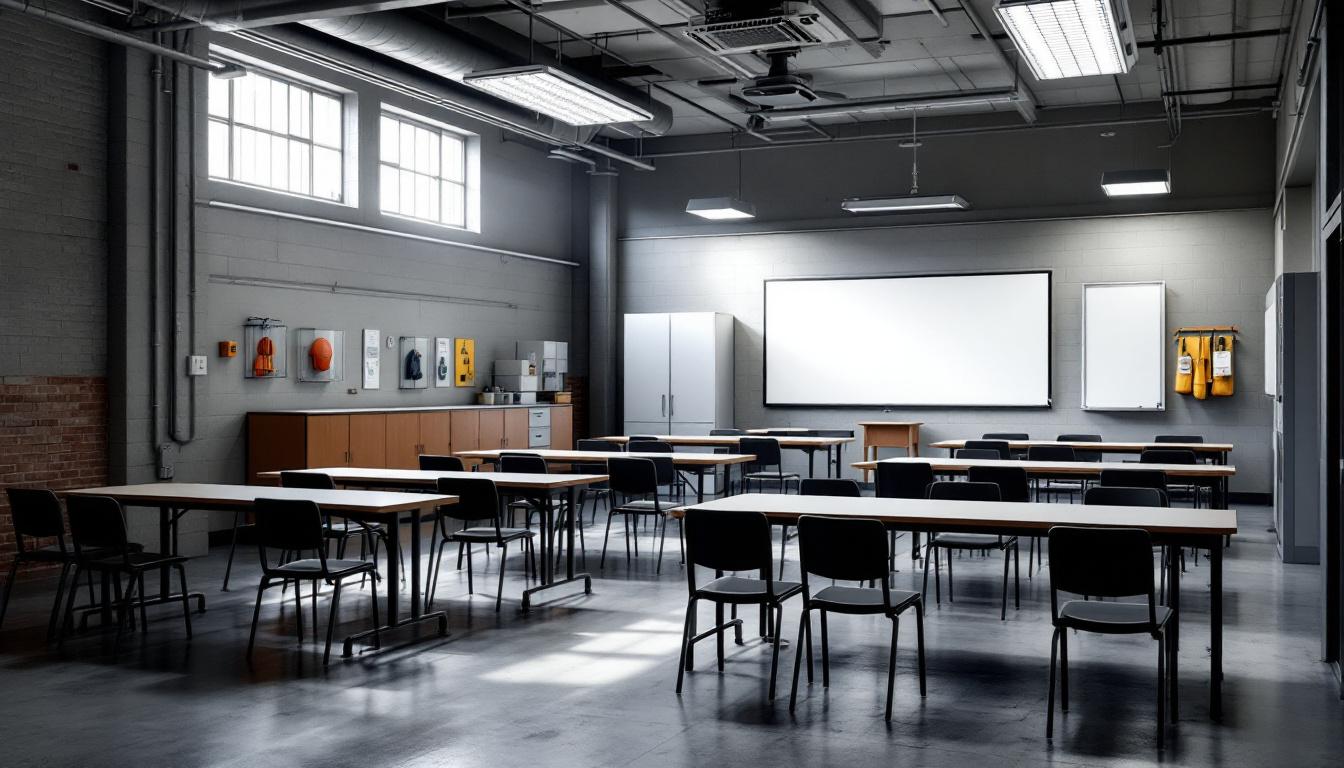
About Kershaw County Detention Center
Maintaining security while fostering rehabilitation opportunities defines the core mission of correctional facilities throughout South Carolina's Midlands region, where the Kershaw County Detention Center serves as a vital component of the local criminal justice system. Located in Camden, this SC correctional facility operates within a community that traces its roots to colonial times, providing detention services for individuals awaiting trial or serving shorter sentences in an area rich with Revolutionary War history and traditional Southern heritage.
The facility typically houses individuals charged with various offenses while they navigate the legal process, offering those incarcerated services that may include basic educational programming, substance abuse counseling, and work opportunities designed to support eventual reintegration into the Camden community. As part of South Carolina's broader correctional network, the detention center generally maintains classification systems that separate individuals based on security levels and specific needs, while providing access to legal counsel, medical care, and visitation opportunities for families. The facility's operations often reflect the challenges and opportunities present throughout the region, where rural communities balance traditional values with evolving approaches to criminal justice and rehabilitation.
Programming at the detention center may encompass various support services aimed at addressing underlying issues that contribute to criminal behavior, potentially including mental health resources, vocational training opportunities, and faith-based initiatives that reflect the cultural values prevalent throughout Kershaw County. The facility's role extends beyond simple detention, as staff typically work to prepare individuals for successful transitions back into the Camden area community through case management services and connections to local support networks that can provide ongoing assistance after release.
Programs & Services
Personal transformation begins within the structured environment where those incarcerated can access meaningful opportunities for growth and skill development. The facility typically emphasizes creating pathways that allow individuals to build upon their existing strengths while addressing areas that may contribute to successful reintegration into their communities. Through a comprehensive approach to programming, participants often find themselves engaging with resources designed to foster both personal accountability and practical skill acquisition.
Educational offerings form the cornerstone of developmental opportunities, with services that may furnish basic literacy instruction, GED preparation, and academic tutoring programs. Those incarcerated can typically access individualized learning plans that accommodate various educational backgrounds and learning styles. Moreover, vocational programs often include training in practical trades and job readiness skills, helping participants develop marketable abilities that can support their transition back into the workforce. These structured learning environments provide both the foundation for academic achievement and the practical tools necessary for employment success.
Faith-based initiatives and religious services create additional avenues for personal reflection and community connection within the facility. These offerings typically provide spiritual guidance and support systems that many participants find valuable during their period of incarceration. The combination of educational, vocational, and spiritual programming creates a multi-faceted approach to personal development, allowing those incarcerated to engage with resources that align with their individual goals and interests while maintaining the security and structure essential to facility operations.
Daily Life & Visitation
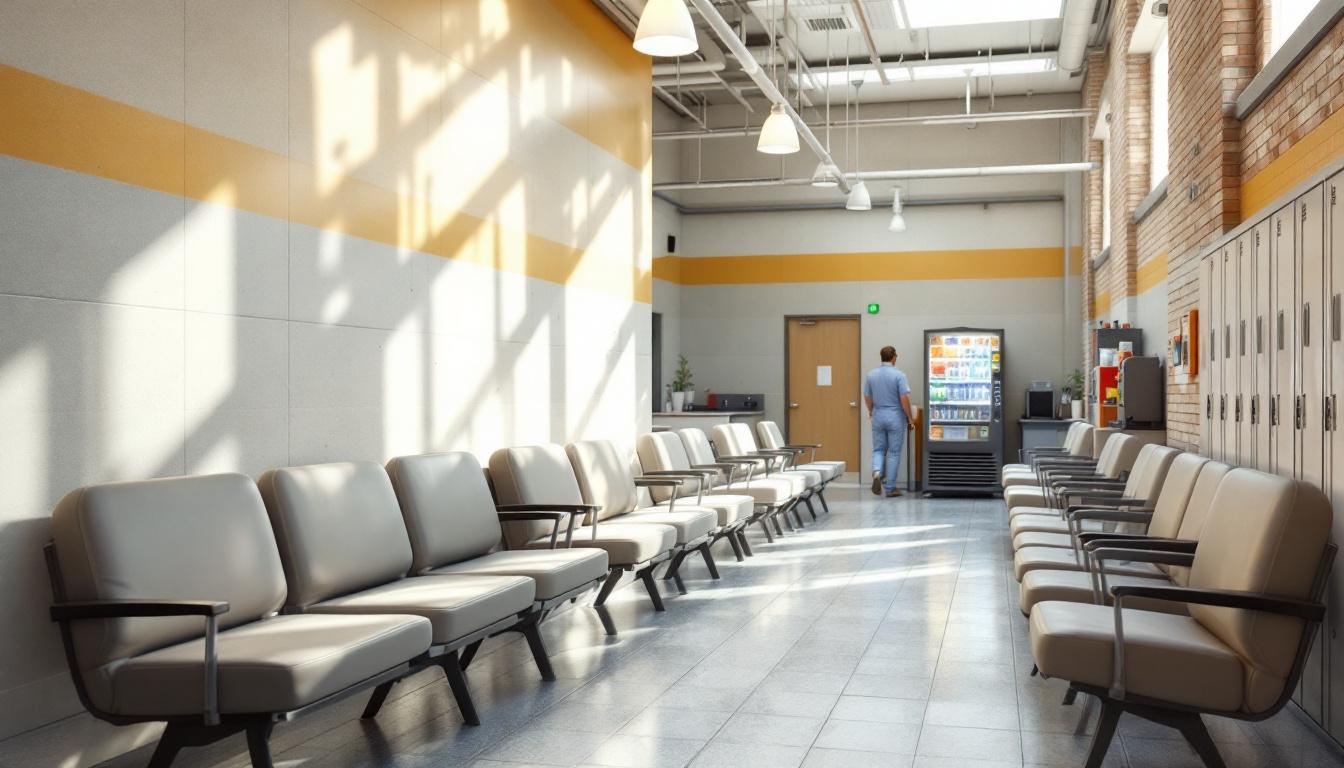
Family connections and social bonds often serve as vital anchors for those incarcerated at Kershaw County Detention Center, helping maintain relationships that extend beyond the facility's walls. At present, the daily routine actively revolves around structured meal times, recreation periods, and programming opportunities that encourage interaction among residents. Those incarcerated typically begin their day with breakfast service, followed by various activities that may include educational programs, work assignments, or recreational time that furnish both structure and opportunities for social engagement.
Living accommodations generally consist of shared housing units where residents are housed together in dormitory-style or cell arrangements. These spaces often become centers of community interaction, where those incarcerated may share experiences, offer mutual support, and develop relationships that help them navigate their time at the facility. Moreover, the dining arrangements typically bring residents together for communal meals, creating natural opportunities for conversation and social connection. Work assignments within the facility may include kitchen duties, maintenance tasks, or administrative support roles that allow residents to contribute to the facility's operations while developing workplace relationships.
Visitation policies generally allow for regular contact with family members and loved ones, providing crucial emotional support and maintaining outside connections. Those incarcerated may also have access to telephone services and correspondence privileges that help preserve relationships with their support networks. Whereas recreation and exercise opportunities often include outdoor time, recreational activities, and possibly access to reading materials or television programming, these activities furnish important outlets for stress relief and social interaction. The facility typically offers various programming schedules that may include educational classes, counseling sessions, or other structured activities designed to support personal development and community building among residents.
Ready to Connect?
Start communicating with your loved one today
Search for an Inmate
